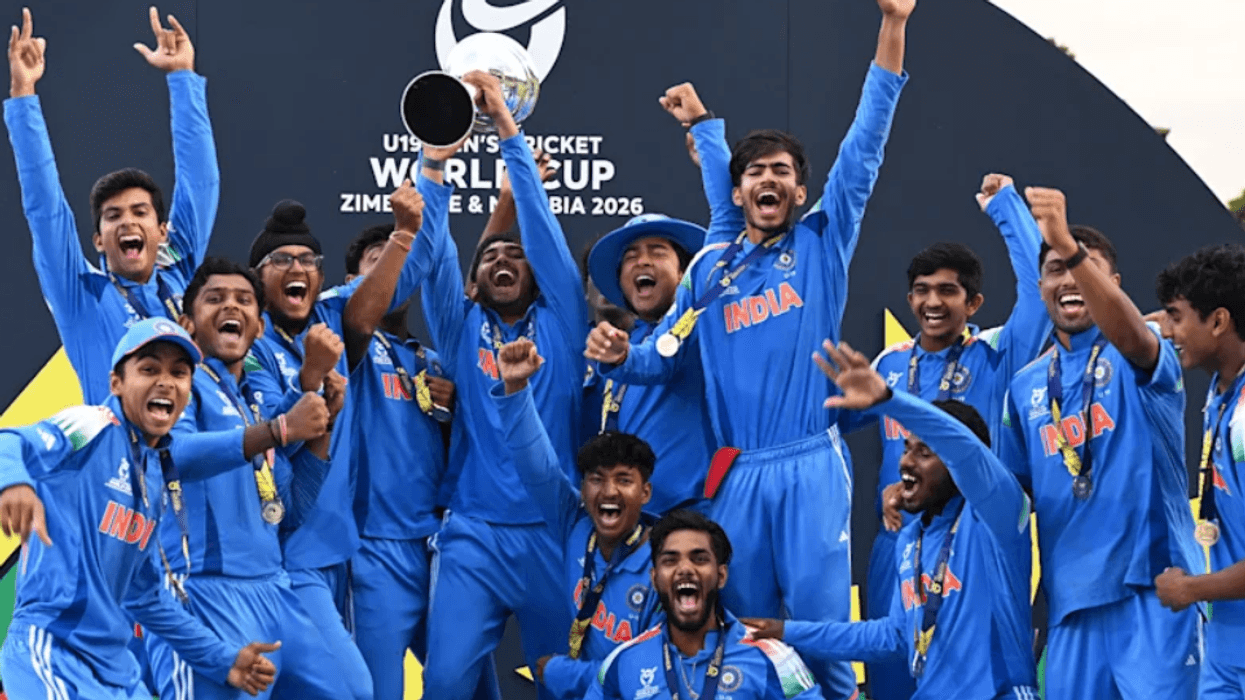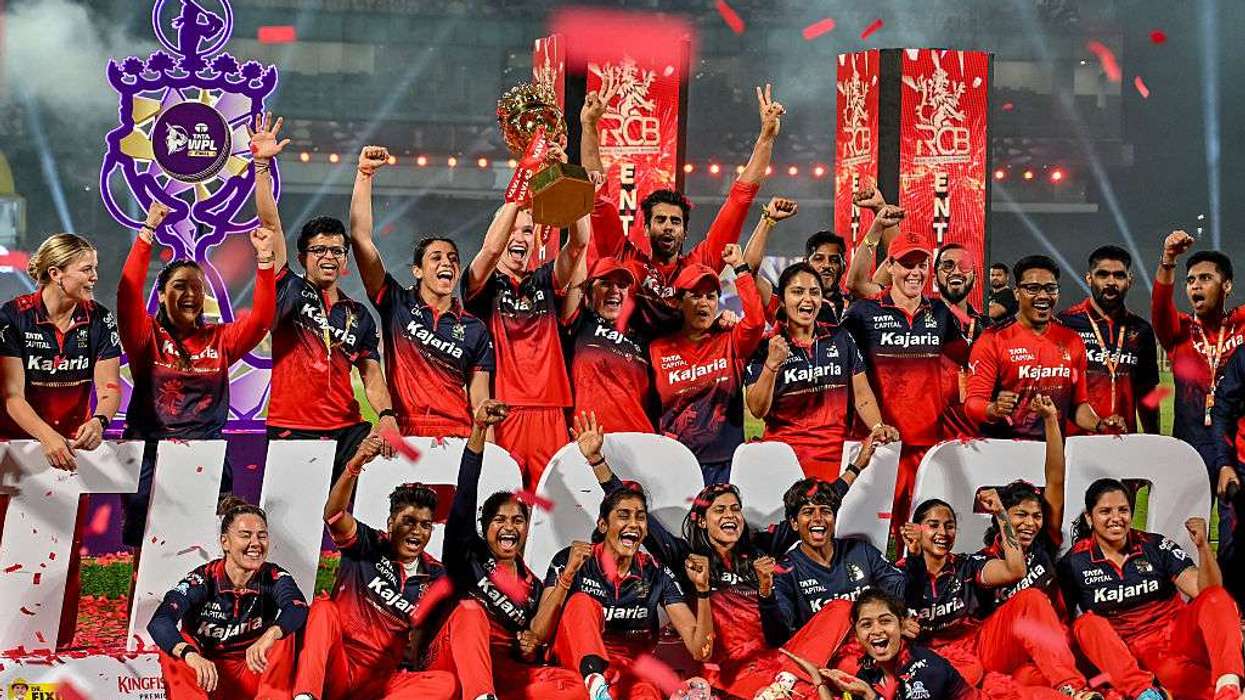By Mita Mistry
Leicester based Chanda Vyas was the first Hindu female priest in the UK and works tirelessly to uplift those she meets. The hardworking wife, mother and grandmother has become an inspiring role model with her path breaking work and has shown it is possible to follow your dreams in a male dominated field. She has channelled a passion for helping people that stretches back to her childhood into a meaningful career that is touching the lives of so many.
Aside from her spiritual and religious duties, the 64-year-old has worked for the local council in a number of roles including helping the elderly, those with mental health issues and people with learning disabilities. The progressive priest even conducted the weddings of her daughters.
A true hero of the community, Chanda is breaking glass ceilings and has helped countless people in a constantly evolving world. Eastern Eye’s resident ancient healing expert Mita Mistry caught up with Chanda to talk about her journey towards becoming a priest, spirituality, woman empowerment, inspiration and more.
When did you first get connected to spirituality?
Spirituality has been a big part of my life from a very young age as I’ve always felt this natural connection to god through my personal thoughts, religion and customs. Growing up in a religious family with my father serving as a priest, I helped out in many different temples during all the religious festivities. This subsequently allowed me to make and understand my connections of both religions and spiritual beliefs.
What led you toward a career as a priest?
It’s something I always dreamt of doing from my childhood. I watched my father and other priests performing religious ceremonies, which allowed them to grow closer to god whilst supporting communities through their service and I longed to be able to do the same.
What was the biggest challenge you faced going down this path?
My journey has been very encouraging and progressive on every level. With god’s blessing and the support of the community I haven’t faced much pessimism on the whole.
Tell us about your journey as a priest and what you do?
It’s a truly enlightening journey. Being present and involved with the lives of individuals from blessing births of new born babies, conducting wedding ceremonies all around the world, blessing new homes to doing all the poojas and kathas associated with Hindu religion has been fulfilling. As has providing solace during the loss of loved ones. Better known in Sanskrit as ‘solah sanskar’; this only brings me continued peace and spiritual bliss.
How many female priests are there?
There are many empowered women all over the world that are fulfilling this rewarding role within their communities. I would encourage more women to take that step forward on this truly beautiful journey of instrumental service.
How has spirituality helped you?
Spirituality is a part of my being, enabling me in my many roles as a grandmother, mother, wife, daughter and friend, whilst offering my services to the community. Spirituality and meditation coupled are the world’s best medicine to allow one to consider, reflect and understand matters that we all face, whatever they may be.
How can spirituality and religion help others?
Both are very separate entities. Spirituality is an emphasis on one’s personal spirit, being in touch with one’s self and focusing on positivity in our personal environment as well as that in the universe. Religion provides us with guidance, understanding, meaning and a focus on knowing that God is there by our side during this journey called life. Both coupled together allow us to understand the teachings and help us to implement the practice in a more meaningful, rewarding way.
What has been your most memorable moment in the job?
It absolutely has to be conducting the weddings of my daughters. It was very emotional and as one cannot split themselves from the role of a mother whilst performing the role of a priest. However there is no love purer than that of a mother and child, and I cherish the energy I felt in the mandap during the ceremonies. I feel very blessed to be able to bond with all couples and families for whom I conduct ceremonies. They all become my extended spiritual family for which I feel truly blessed.
What are your future hopes?
With god’s blessings I hope to continue to support, guide and enable people from all walks of life and situations as and when they need me. I also hope that more women will follow their dreams and ignore all negativity and criticism that stems from ignorance and lack of understating. Additionally, I’d like more of the younger generation to continue to take more interest in the understanding of our religious beliefs and gain real perspective on the meanings and principles of religion.
What has the response from younger people been like since you took on the role of a priest?
I have been pleasantly astonished that the younger generation are not ignorant of the traditions, culture and familiar beliefs. In fact all they want is clarity and understanding on the true meaning instead of just ‘doing as they are told’ so to speak. This gives me great hope and confidence that this beautiful religion will live on through the generations.
What advice would you given women who want to follow a different career path like yours?
I encourage all women from all walks of life to strive forward towards their aspirations, whatever they may be. There is nothing more satisfying than working towards your life goals and helping other to reach theirs. Do not be phased by negativity and criticism. There will always be challenges to face on any journey; for this we have spirit and inner strength. Life is a journey and we must live it.
What needs to be done to help more women achieve their dreams?
For women to achieve their dreams, they first and foremost need to have self-belief. They need belief that they deserve a seat at the table and that they are good enough. I think women need to support and encourage each other to get there. Educational institutions and employers also need to make the environment more favourable to the lifestyle of women, especially those with children.
What does the future look like for female priests of any faith?
The future for female priests looks bright and balanced. I have full faith that more women will come forward to support, provide strength and unify through this instrumental role. We are living in a world that is fast evolving and very embracing of change, which gives me great confidence that more women are rising tall to make their dreams come true.
What different things does being a female priest bring to the world or lives of others?
As a woman our perspective is different to that of a man and this is vital when servicing a community that includes both men and women. From experience, there have been many occasions when I have been approached for guidance, service provision and advice as I am a woman, as it’s believed my understanding, outlook and approach to matters of religion, tradition and culture are more valuable. Therefore it is vital that we have equal numbers of both male and female priests available for our communities.
Which aspect of your journey would you relive or have done differently?
I would like to have gone to university when I was a teenager. I think that would have dramatically changed the course of my life, but in those days it was not the typical thing for women to go to university. However I have lived vicariously through daughters who continue to inspire me everyday!
If you could change the world tomorrow, what would that change be?
I want to live in a world that gives fair and equal chances to all regardless of their background. A world there was mutual respect and regard for everyone and where people are judged by their positive contribution towards society to make it safer, tolerant and peaceful.
Today what inspires you?
My inspiration comes from being there for people in their time of need, whether it’s a celebration of a new born child or a wedding, or a time of sadness and mourning. Being there to support, provide perspective and calm brings me spiritual peace and happiness. This is my motivation for my work; this is my peace of mind.
You are inspirational, but which female role models inspires you most?
I’m inspired by many of which one has to be the beautiful late princess Diana. She was a very compassionate woman, always willing to help people in need whilst maintaining her stature and presence as a royal. In life we must all be willing to give without expecting to receive as this is one of life’s greatest rewards, the power to bring happiness to others. Om Shanti.



